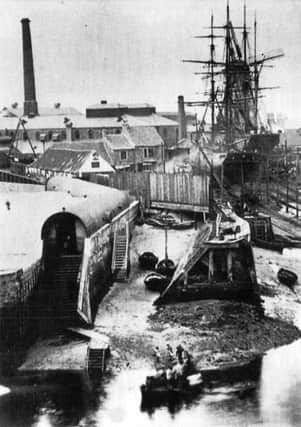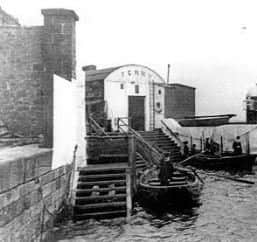Who remembers the last of the Hartlepool ferrymen?


He was the last in a long line of ferrymen of Hartlepool, and his story comes to us courtesy of Hartlepool library officer Sandra McKay, from the Central Library.
The Central Library’s reference section has helped many a researcher down the years and here is another example of the archives kept there.


Advertisement
Hide AdAdvertisement
Hide AdThere’s likely to be a few people who still remember the days of the Hartlepool ferry.
If you do, you will probably also recall the veteran ferryboatman Tom Boagey.
It was 1952 when the town last had the service which took passengers between Middleton and Hartlepool for a fare of two pence per person.
It ended when Tom died in December that year. He had slipped on the landing-stage steps and died before reaching hospital.
Advertisement
Hide AdAdvertisement
Hide AdIt was a tragic end and many people fondly remembered Tom who had been well known in the docks area.
A Northern Daily Mail report at the time said: “He was a seaman, slinger for a local firm and fisherman.
“Two years ago, he took over the ferry and throughout the year, he would be at the landing stage from 6.30am to 5pm in all weathers and seasons.”
He was a loyal servant to the people of Hartlepool at a time when the ferry’s popularity was waning.
Advertisement
Hide AdAdvertisement
Hide AdA story earlier in the same year told how Tom was having to consider taking up fishing because the ferry just was not making enough money to pay his way.
Even during carnival week that year, the busiest in the season, he had worked until 9pm one day and still only transported three boatloads of people - while queues of carnival goers waited for buses.
In the winter, he would take as little as one shilling a week and this was at a time when his home and ferry bills alone came to 32 shillings, for a man providing a service for the town.
Yet, it was perhaps an indication of Tom’s caring nature that he refused to put the ferry price up - even though he had to row a heavy boat across the harbour in rough weather.
Advertisement
Hide AdAdvertisement
Hide AdWhen a rise was suggested to him, he replied: “There just isn’t the money about, they would all walk round by the road if I did that.”
He added: “I’ll carry on as long as I can.”
Sandra told us: “The ferry was an essential service for the people of Hartlepool as it carried thousands of workers to the dockyards at Middleton.”
It was an essential facility in the First World War and even became so full at one point, that men were late for work in the shipyards because so many of them were queueing for the ferry.”
We will have more on the ferry service next week, including more on its long history.
In the meantime, get in touch with your memories by emailing [email protected] or calling (0191) 5017473.
And for more information on the Central Library, contact (01429) 272905.